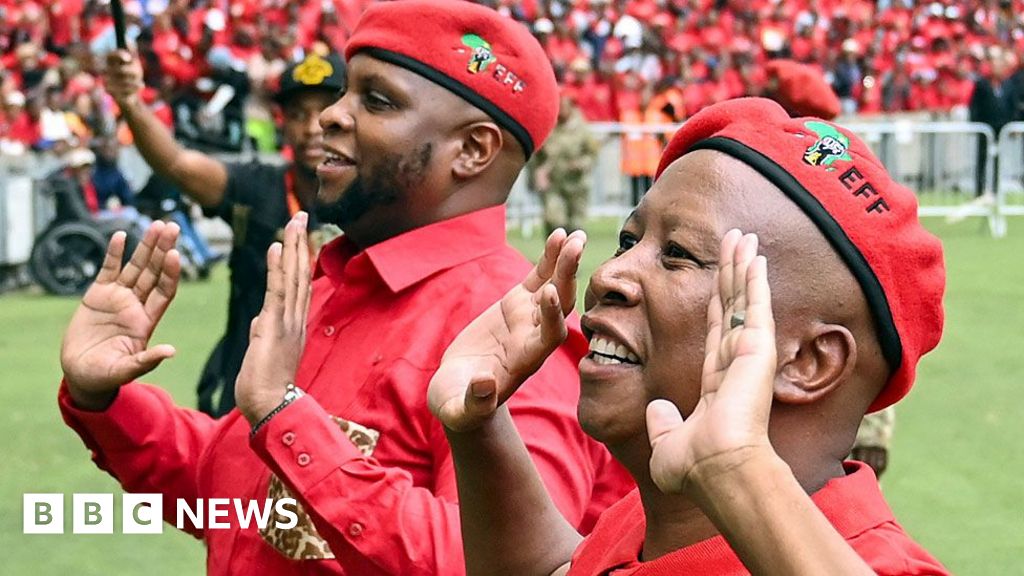“The EFF took with it almost the entire youth wing of the ANC, and also came to dominate student politics at campuses across South Africa, such was the party’s appeal amongst young people,” said Paddy Harper, a journalist with South Africa’s Mail & Guardian newspaper.
“Malema had the charisma to get support, and Shivambu the brains to give it ideological direction,” he told the BBC.
“With their break-up, the EFF will enter a period of turmoil. This will be felt across South Africa, from campuses to parliament as the EFF tries to prevent losing more support to MK.”
However, political analyst Moeletsi Mbeki said the break-up would actually “strengthen” Mr Malema’s position in the EFF as he no longer faced a “potential threat” to his power.
“The EFF is considered as more of a cult, run by Malema. In such a system, the leader is the leader. Full stop. Anyone who appears to be close to the leader eventually becomes a casualty,” he told the BBC.
The first public sign of the relationship running into trouble came last year, when Mr Malema paid a glowing tribute to Mr Shivambu, describing him as a thinker, before warning him not to plot against him.
“I’m ruthless against people who do such things to me, so never try that with me,” Mr Malema was quoted as saying at a gala dinner, external.
With Mr Malema set to run for re-election as party leader at the EFF’s conference in October, Mr Shivambu, 41, appeared to have decided that it was time to move on.
MK has made him its national organiser – a demotion from his role in the EFF but still a senior post with the responsibility of growing the party.
But, Mr Harper said, it was unclear how he would get along with Mr Zuma, given their previous fall-out and the fact that the former president was also a cult-like figure in MK who repeatedly appoints and sacks officials. In less than a year the party has had three secretary generals.
“But there is also the view that the party is still finding its feet, and will stabilise with its core leadership including Zuma, John Hlophe, the impeached judge who has been made his deputy, and Shivambu,” Mr Harper said.
Another reason which could have pushed Mr Shivambu to defect is that he and Mr Malema – despite their public personae of being socialists and African nationalists – were at the centre of a major corruption scandal, he added.
They have been accused of receiving about 16m rand ($900,000; £700,000) in “gratification” – bribes, in simple language – from the boss of a now-liquidated bank after meeting him at a penthouse in an upmarket suburb of Johannesburg in 2017.
The allegation was made in a recently leaked witness statement, external by the bank’s disgraced boss, Tshifhiwa Matodzi, after he pleaded guilty to 33 counts of corruption, theft, fraud, money laundering and racketeering for being involved in what investigators described as a “bank heist”.
This article was originally published by a www.bbc.com . Read the Original article here. .


